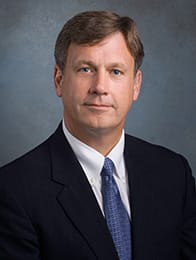Firm Obtains Successful Fifth Circuit Ruling in Construction Dispute

Beard Kultgen Brophy Bostwick & Dickson, LLP successfully represented Barry Pledger in a case involving a debt owed to Ratliff Ready-Mix which Ratliff claimed was not dischargeable in bankruptcy because it arose from a violation of the Texas Construction Trust Fund Statute.
Barry Pledger filed for Chapter 7 bankruptcy and attempted to discharge a debt owed to Ratliff. Ratliff filed an adversary proceeding in the bankruptcy court claiming that Pledger misapplied funds as described in the Texas Construction Trust Fund Statute (the “Act”) and therefore the debt was not dischargeable pursuant to 11 U.S.C. 523(a)(4). Both the bankruptcy court and the district court held that 11 U.S.C. 523(a) did not render the debt non-dischargeable because Pledger’s use of the funds was covered by an affirmative defense found in the Act.
Reviewing the case law about this statute and the defenses it provides, the Fifth Circuit affirmed judgment for the debtor. Citing Nicholas, the court stated that to overcome Pledger’s statutory affirmative defense, “Ratliff had to establish that the payments made by Pledger were not ‘actual expenses directly related to the construction.’ Specifically, Ratliff must show that (a) these were not payments made on the project or overhead, or (b) they were made for Pledger’s own uses rather than to benefit the health of his failing business.” Ratliff Ready-Mix v. Pledger, No. 14-50023 (Jan. 23, 2015, unpublished) (citing 956 F.2d 100 (5th Cir. 1992). The court further stated, “[i]t would be hard to argue that paying taxes, repairing vehicles and equipment, and compensating employees could be categorized as anything other than maintaining the business.” Id.
In reaching its conclusion, the court primarily relied on two prior cases, In re Nicholas and In re Swor. 956 F.2d 100 (5th Cir. 1992); 347 Fed.Appx 113 (5th Cir. 2009). In Nicholas, the court analyzed the Trust Fund Act and determined that while the requirement of a trust fund and the rules covering how funds may be spent created certain fiduciary duties, it only creates these duties to the extent that activity is wrongful under the Act. Nicholas, 956 F.2d at 114. The court analyzed whether the “actual expenses” language found in the Act encompassed general overhead and found that at a minimum, contractors could spend money from one project to another in order to keep the business afloat. Id. In Swor, the court, relying on Nicholas, recognized that under the Act’s “actual expenses” exception, trust funds could be spent on “expenses related to general business overhead.” 347 F.App’x. at 116.
Ultimately, Ratliff failed to prove that the trust funds were diverted for an improper use, but rather, the evidence clearly established that the diverted funds were used to pay bills for other projects or project overhead and therefore covered by the affirmative defense.
The Firm handled the case pro bono and Rick Brophy argued the case to the Fifth Circuit.
